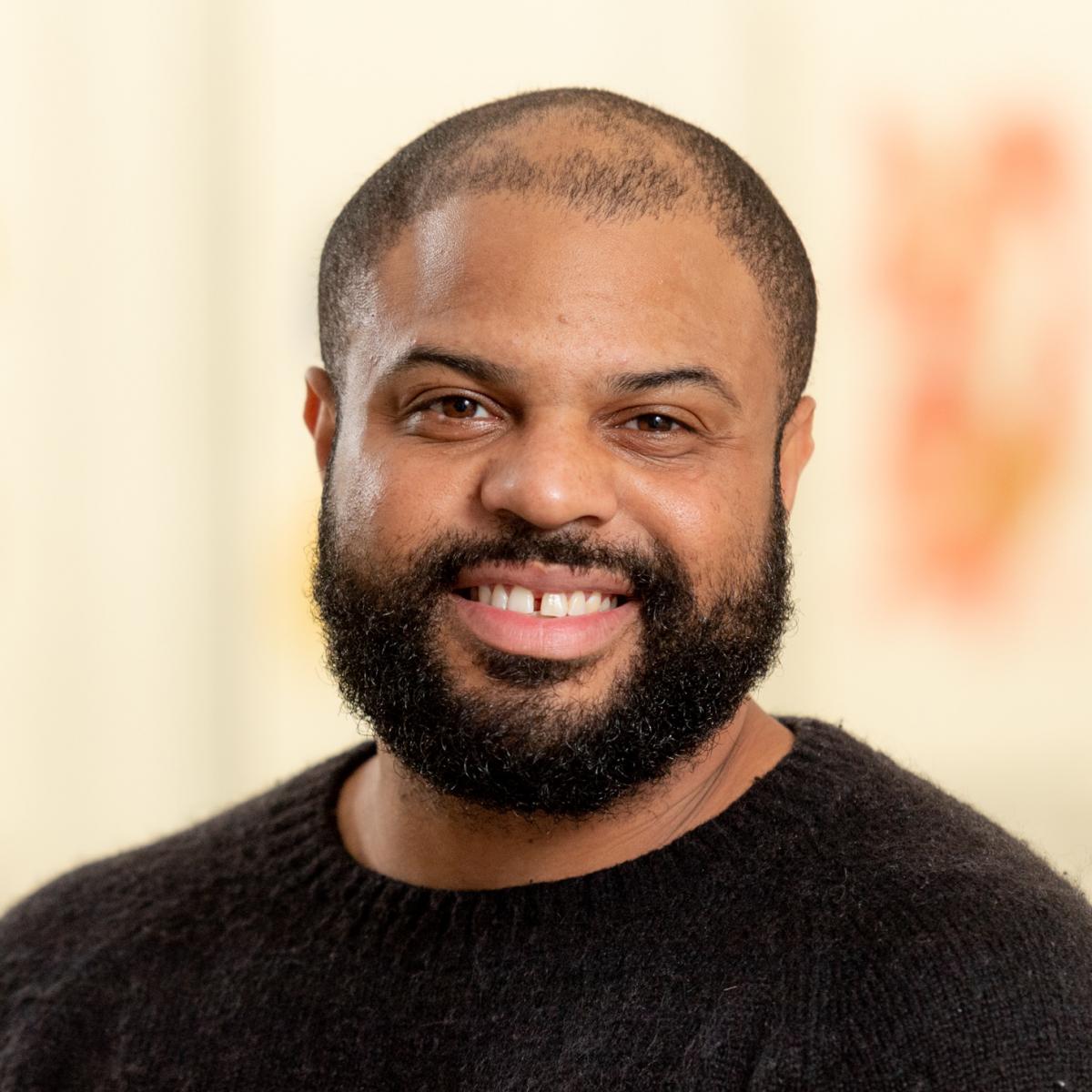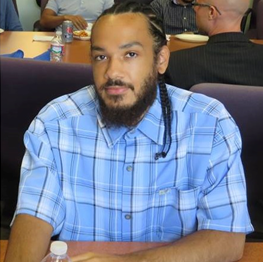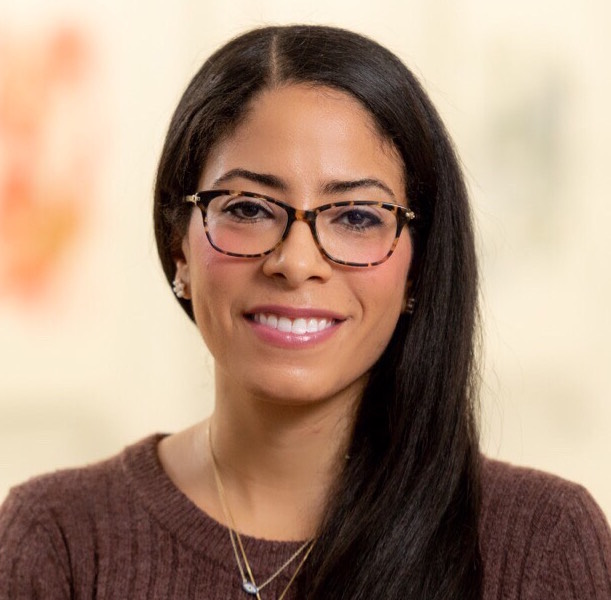The 2019-'21 Cohort:
- Kory Evans
- Maurice Fabien
- Alani Hicks-Bartlett (as of July 1, 2020, tenure-track faculty)
- Safiya Sinclair
|
|
Kory Evans
Kory Evans is an integrative evolutionary biologist interested in the macroevolutionary drivers of phenotypic diversification. The goal of his research program is to take a multifaceted and integrative approach to understand the morphological evolution and ecology of teleost fishes (Teleostei: Actinopterygii).
Evans earned his Ph.D. in Biological Sciences from the University of Louisiana at Lafayette in 2017 with his dissertation titled, "Evolution of craniofacial diversity in Neotropical electric fishes," and his B.Sc. in Marine Biology from Nova Southeastern University in 2013. |
|
|
Maurice Fabien
Maurice S. Fabien is the Prager Assistant Professor of Applied Mathematics and a Presidential Postdoctoral Fellow in the Division of Applied Mathematics at Brown University. His primary research interests include scientific computing, high performance computing, finite element techniques and real world applications. A key component of his research explores the application of advanced mathematical and computational methods to scientific problems, so that robust, reliable, and accurate simulations can be generated.
Dr. Fabien received his Ph.D. from Rice University in Applied and Computational Mathematics, his M.Sc. in Applied Mathematics and B.S. in Mathematics from the University of Washington. |
|
|
Alani Hicks-Bartlett
Alani Hicks-Bartlett is a Presidential Diversity Postdoctoral Fellow in the Departments of French Studies and Hispanic Studies, and the Program in Medieval Studies. Her research interests include the querelle des femmes, fabliaux, gender and violence in Medieval and Early Modern texts, notions of power and empire in chansons de geste and Early Modern epic poetry, the development of the love lyric, classical exemplarity in Medieval and Early Modern French literature, and digital humanities. Her current projects focus on gender and race in Medieval French literature, representations of disability in Medieval and Early Modern prose compositions, and Medieval women’s writing and the (proto)feminist complaint tradition.
Hicks-Bartlett received her PhD in Romance Languages and Literatures and in Medieval Studies, with a Designated Emphasis in Women’s and Gender Studies from UC Berkeley, and her Doctorate in Modern Languages in Italian Literature from Middlebury College. She holds MA degrees in French Literature, Italian Literature, and Spanish Literature from Bryn Mawr College and Middlebury College. Her research has recently been supported by the Mellon Foundation, NYU’s Center for the Humanities, the American Association of University Women, the Electronic Cultures Lab and the Digital Humanities Institute at the University of Victoria, the Ford Foundation, and others. |
|
|
Safiya Sinclair
Safiya Sinclair is a Presidential Postdoctoral Research Associate in the Literary Arts Department. She is the author of the debut poetry collection Cannibal (University of Nebraska Press, 2016), which received the Whiting Writers’ Award, the American Academy of Arts and Letters Addison M. Metcalf Award, the OCM Bocas Prize for Caribbean Poetry, the Phillis Wheatley Book Award, and the Prairie Schooner Book Prize in Poetry. It was selected as one of the American Library Association’s “Notable Books of the Year,” and was a finalist for the PEN Center USA Literary Award, as well as being long listed for the PEN Open Book Award and the Dylan Thomas Prize. Her forthcoming memoir, How to Say Babylon, will be published by Simon & Schuster.
Born and raised in Montego Bay, Jamaica, Sinclair’s poems are deeply engaged with black womanhood, postcolonial poetics, preserving Jamaican folklore and oral histories, and interrogating different modes of exile (exile from the homeland, from the prevailing culture, from one’s own body). In her work, Sinclair aims to write poems that reflect the fertile landscape of Jamaica as a mirror to the landscape of the black female body—untamed, “frightening,” and unknown, while celebrating the nature of that “savagery” as a vital and beautiful part of Caribbean selfhood.
Sinclair’s other honors include a Pushcart Prize, a Ruth Lilly and Dorothy Sargent Rosenberg Fellowship from the Poetry Foundation, fellowships from Yaddo, the Bread Loaf Writers' Conference, the Elizabeth George Foundation, and the Fine Arts Work Center in Provincetown. Her work has appeared in The New Yorker, Granta, The Nation, Poetry, the Kenyon Review, Oxford American, and elsewhere. She received her MFA in poetry at the University of Virginia, and her PhD in Literature and Creative Writing from the University of Southern California. |




